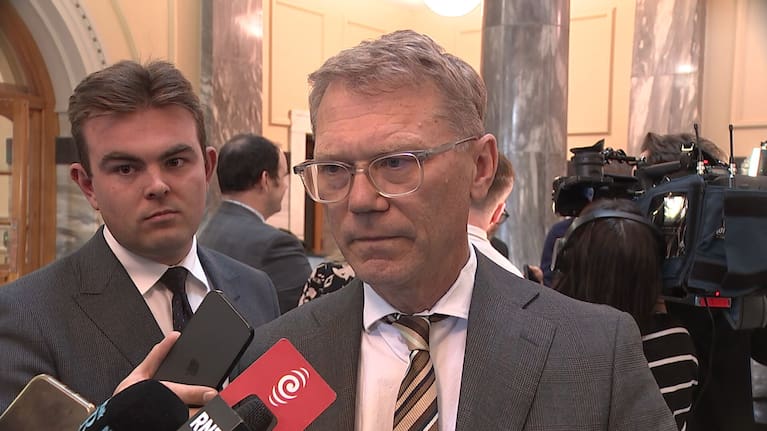Legal experts say New Zealand’s justice system is at risk of being undermined as plaintiffs continue to wait years for decisions from the Human Rights Review Tribunal.
Zelinda Doria was working at a beauty clinic in Taupō in 2017 when she found out she was pregnant.
She said she was then forced to take sick leave, had her hours cut, her clients removed, and was forced to take her maternity leave early.
Doria said eventually she was trespassed from the premises altogether and felt it left her with no choice but to resign.
“It was extremely shocking. I was also at a place in life where my career was taking off. They’d approached me when I’d been working at another place, I had a fabulous reputation for what I do.
“I felt like I was on the up with everything, and then to turn around and have something like that happen was quite life destroying to be honest. Especially financially,” she said.
Doria attempted mediation through the Human Rights Commission, but the dispute wasn’t able to be resolved. Eventually she went to the Human Rights Review Tribunal, with her claim of discrimination on the basis of her pregnancy.
Her employer denies any breach of the Human Rights Act.
She was granted a five-day hearing in 2021, and is claiming more than $100,000 compensation for damages suffered.
Three years on, Doria hasn’t received a decision.
“There were multiple expert witnesses on both sides. It was wild. But then you start to wonder if this is seriously important to them. I’ve had people say to me, ‘do you think there’ll ever be a decision?'” she said.
Others also waiting years for a decision
Director of Human Rights Proceedings Michael Timmins is representing Doria in her case at the Tribunal. She’s one of many of his clients who’ve been waiting years for a decision.
He said the lengthy delays were having a huge impact on those left waiting.
“And these are people that could be vulnerable. And they could be bringing a claim because of something that’s very intimate to their identity as a human being.
“It’s causing all this uncertainty. For some people, there is extra harm and damage from the delay in waiting. We’ve seen a whole range of effects.”
The Human Rights Review Tribunal can award compensatory damages for losses suffered. But Timmins said the delays make these damages more difficult to retrieve for some.
“It has a problem with enforcement. It’s really hard for us to chase the damages that have been awarded.”
1News has been sent figures from the Ministry of Justice showing 32 cases last year took more than two years to be disposed of, either through a Tribunal decision or being withdrawn. The average length of time last year for cases at their conclusion was 758 days — more than two years.
Tribunal chairwoman accepts there have been delays
Chairwoman of the Human Rights Review Tribunal Sarah Eyre accepted there have been delays.
“It is acknowledged that there is a small and reducing number of claims where a hearing was held prior to April 2023 and the decision has not yet been released.”
She said the Tribunal has experienced resourcing challenges in recent years, and that it’s a small tribunal with a high workload.
The Tribunal also introduced its first decision release time frame last year, with the aim to release 75% of decisions within six months of the final day of hearing. It said so far it is meeting this new target.
However, for claims made prior to this date, like Doria’s, the new six month time frame doesn’t apply.
Justice Minister Paul Goldsmith said the delays are for the Tribunal to work through but he may look into its processes.

“They (the processes) may be too complicated. That’s something I’ll get advice on. I’m sure they’ve indicated the current claims they’ll now deal with in a timely fashion, but there is a real issue with a long tail of historic claims,” he said.
But Timmins’ major concern is how it impedes access to justice for Kiwis.
“I think it’s a real concern that in this country, the primary mechanism we have for pursuing justice under the Human Rights Act, it’s not acting effectively. And so I think we’re certainly at risk of being in breach of the right to an effective remedy,” he said.
He said it’s time government provided more support to the Tribunal.
“I’d like to see more attention and more focus on how we can provide the Tribunal with the means to be an effective justice mechanism, consistent with that huge constitutional power that it has.”
